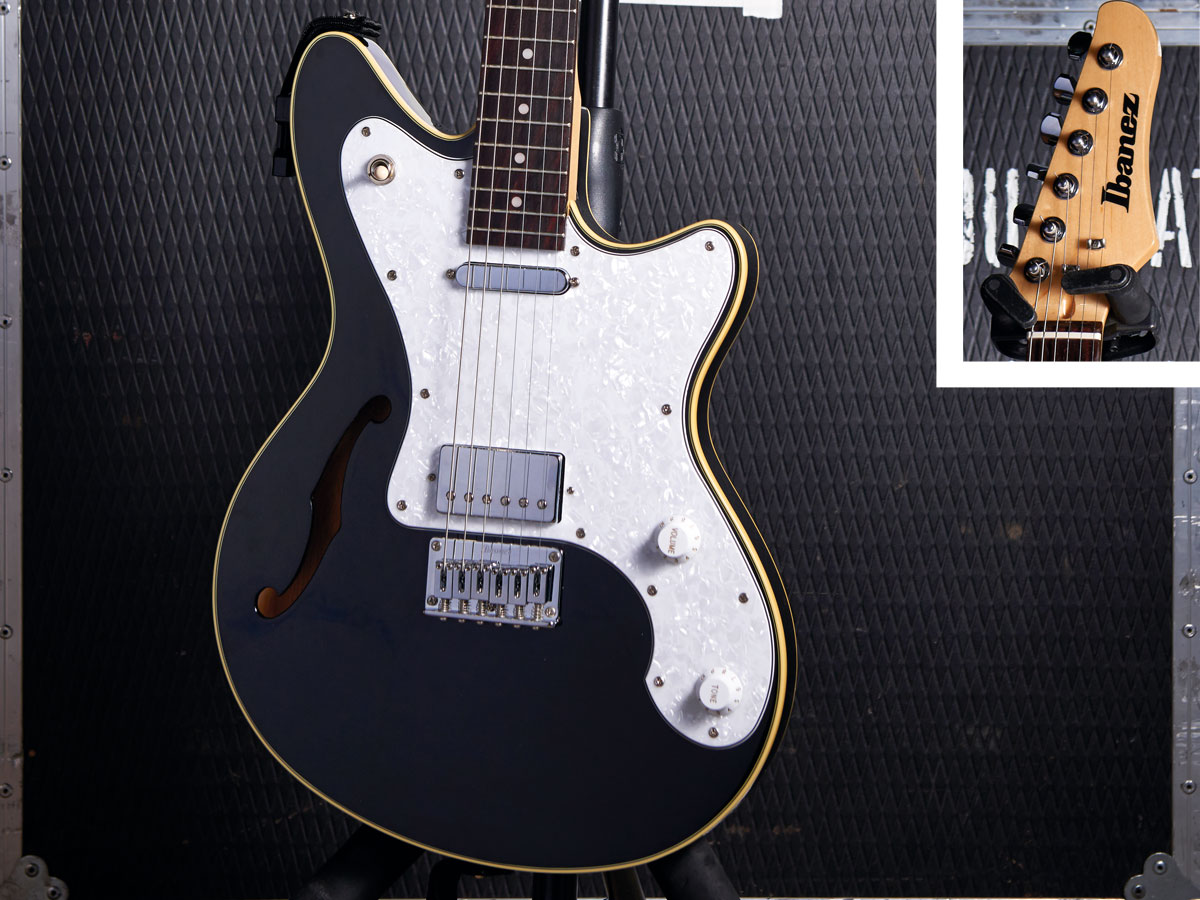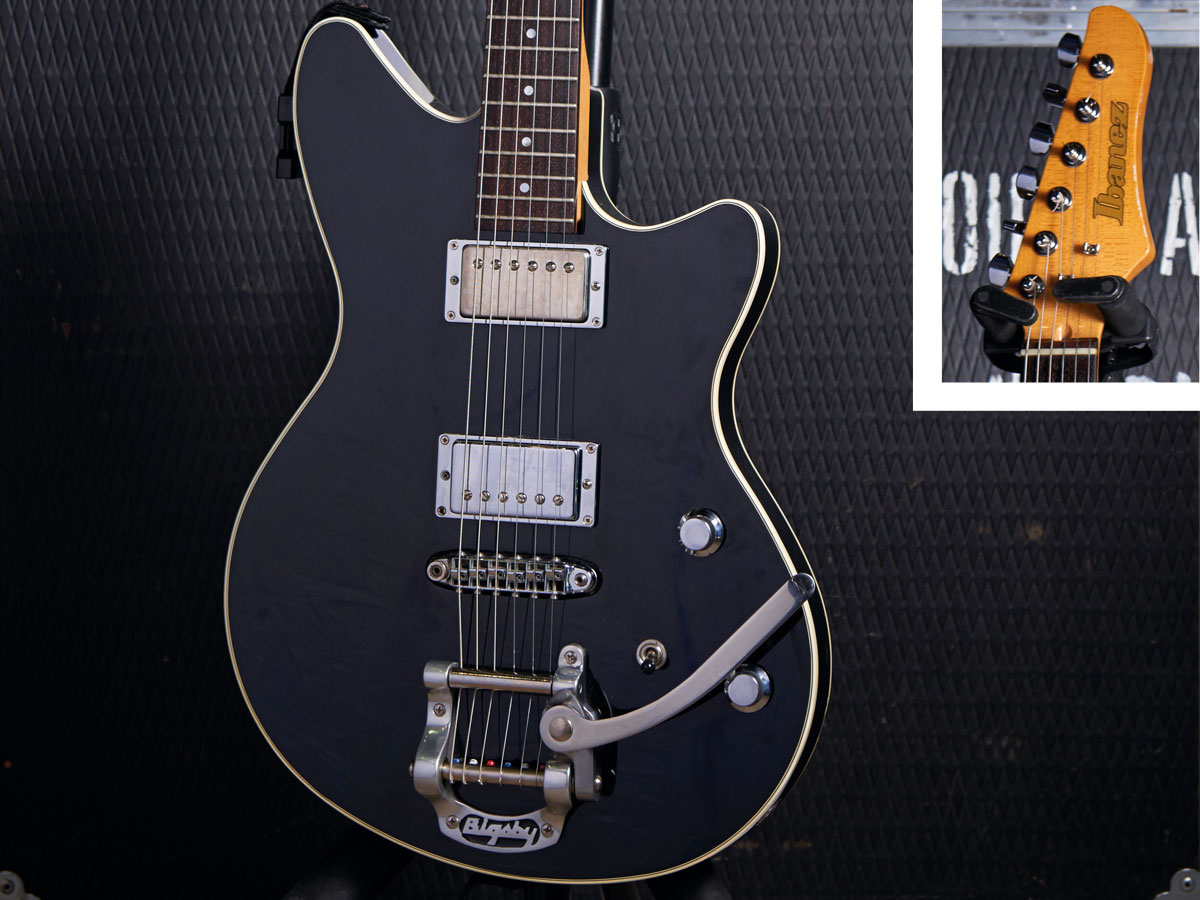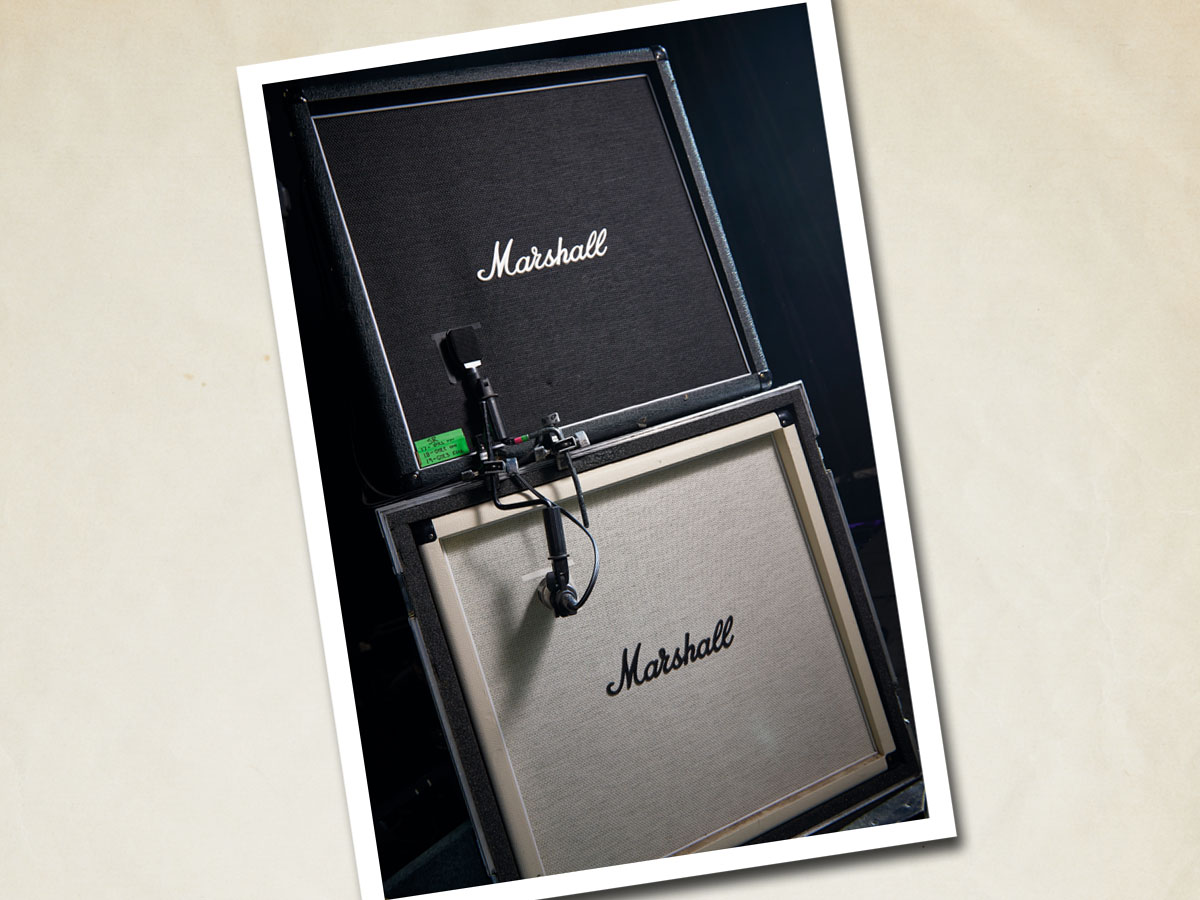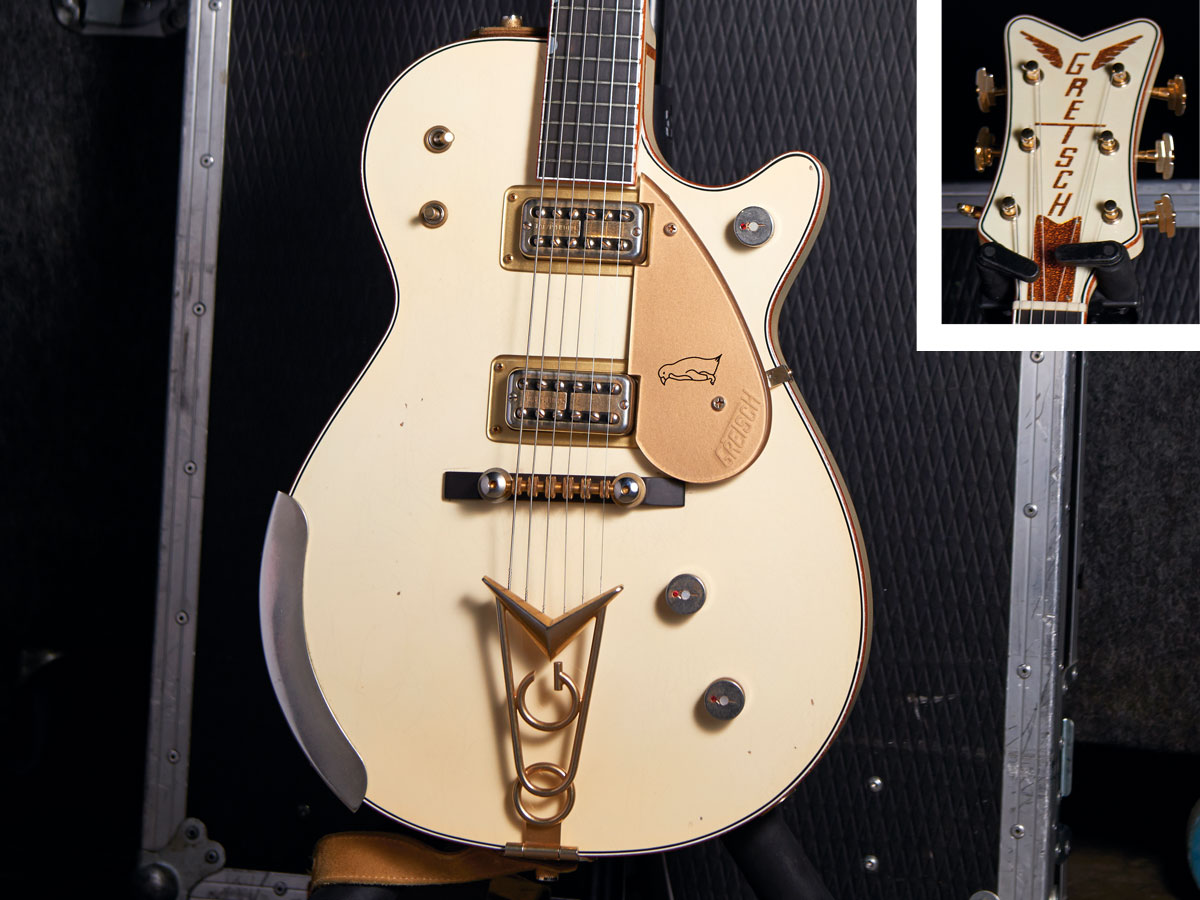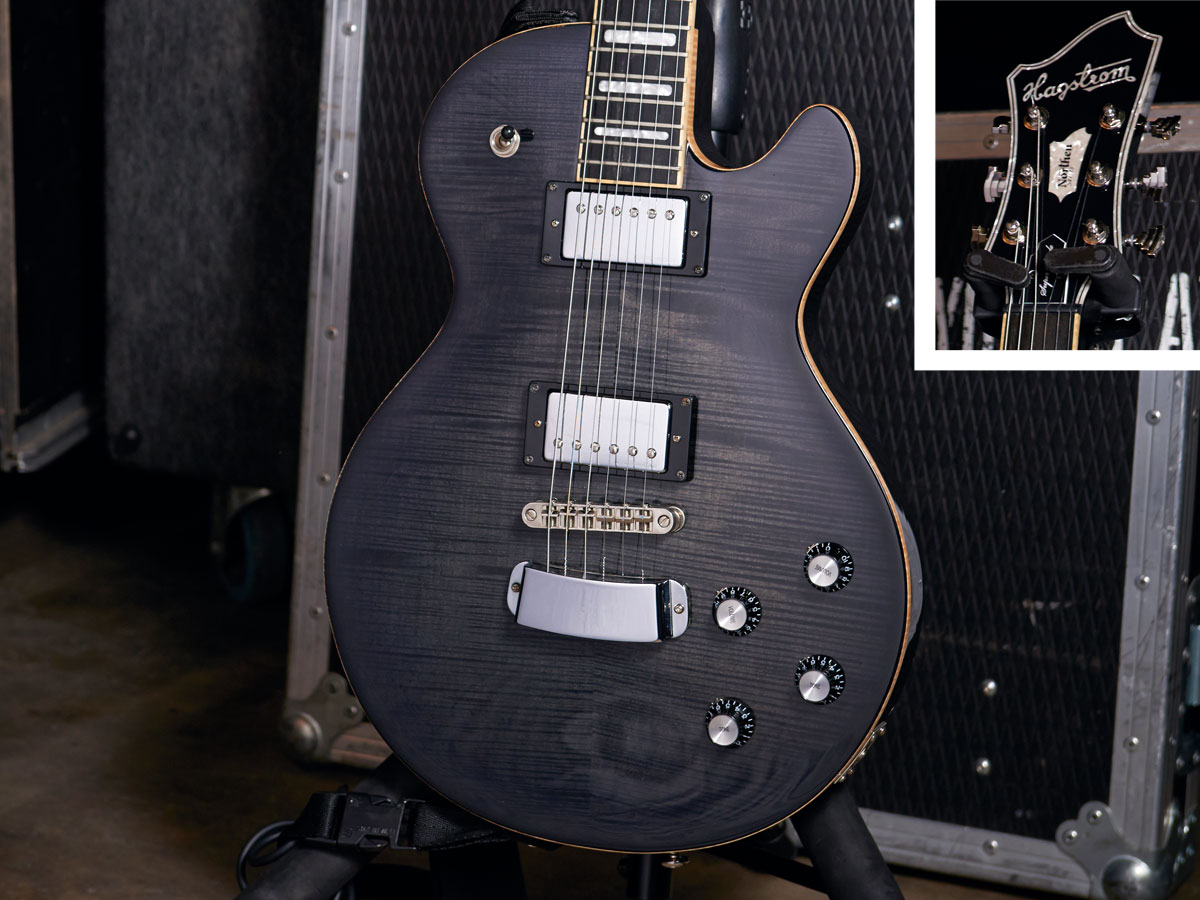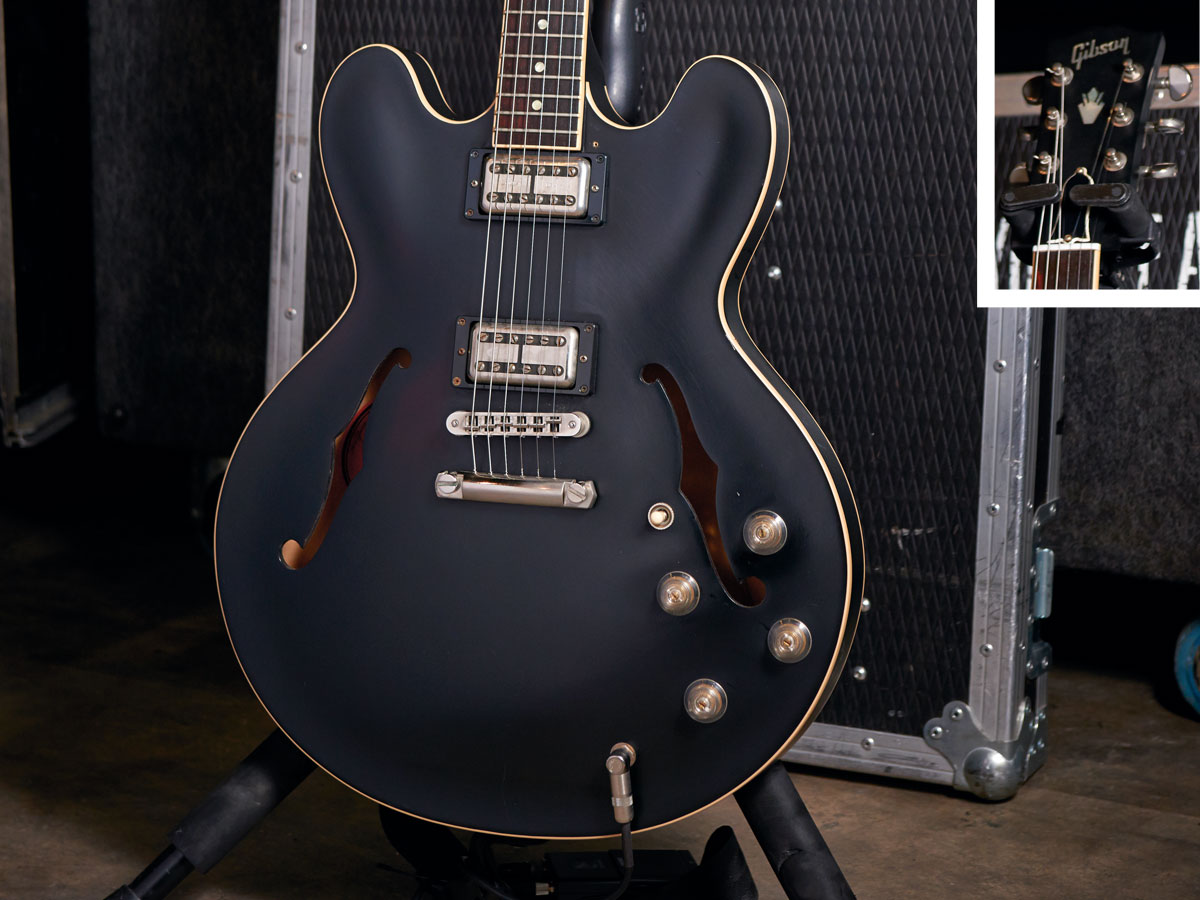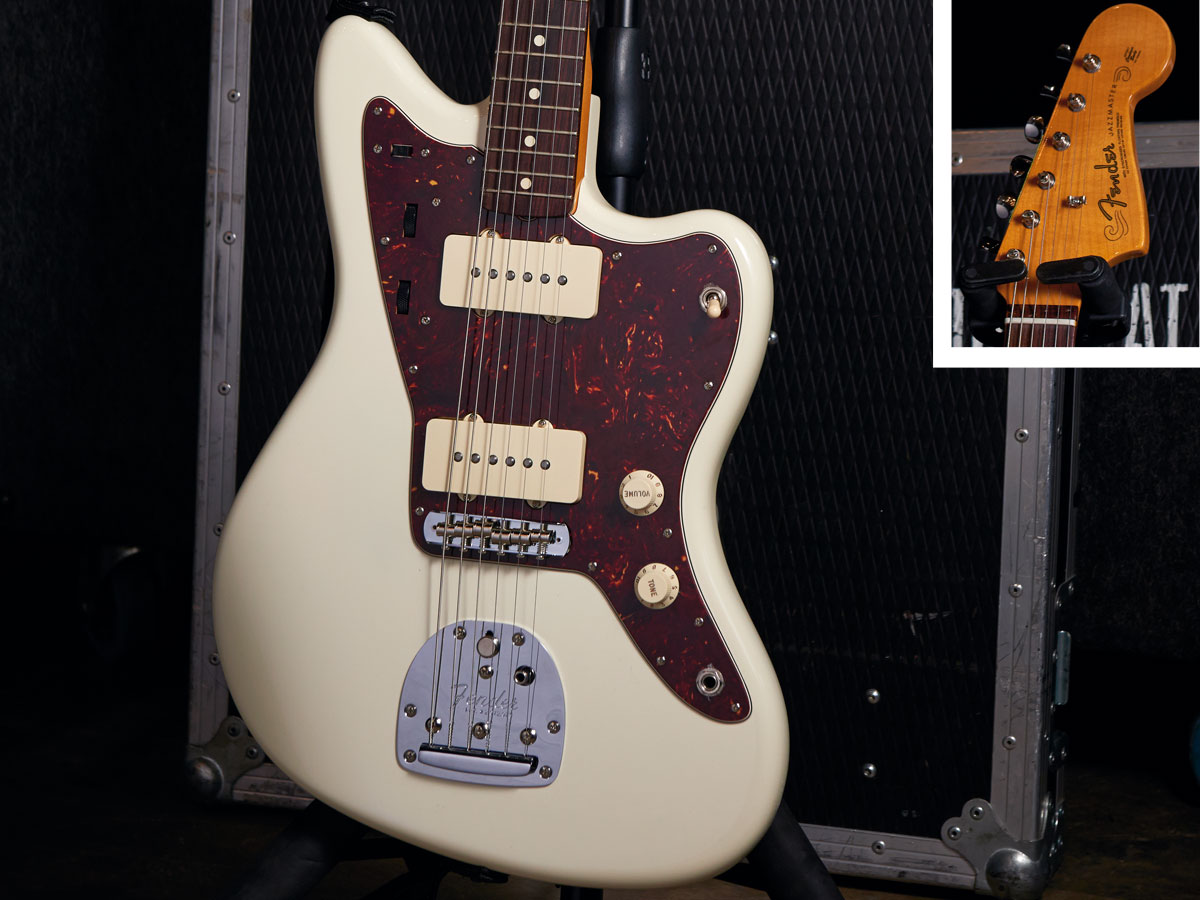Rig tour: You Me At Six
Chris Miller and Max Helyer's guitars, amps and FX
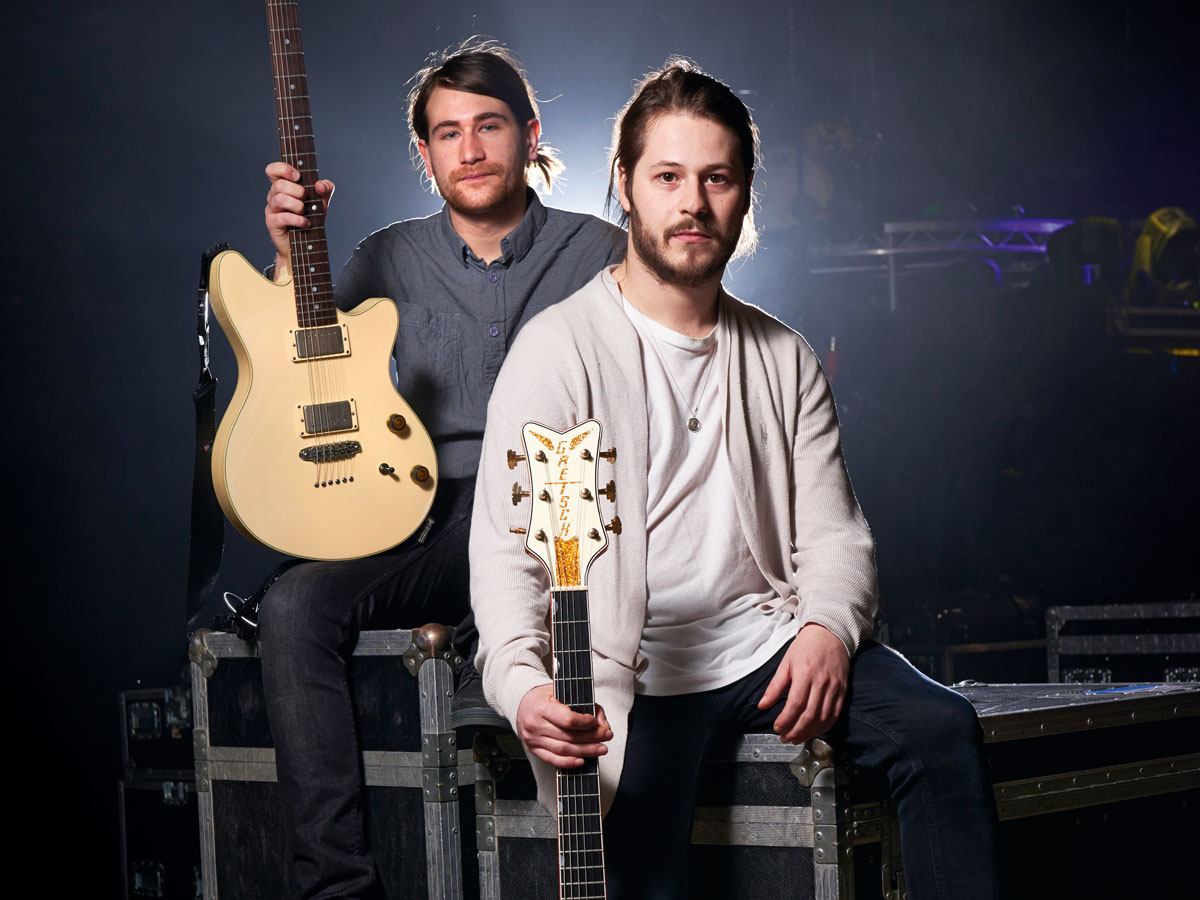
Introduction
From Ibanez customs and master-built Gretsches to the ‘good old TU-2'. The Surrey rockers prove old favourites still have a place next to boutique buys.
Since forming in 2004, Weybridge wayfarers You Me At Six have grafted their way into the UK's biggest live spaces: a point neatly evidenced by the venue for this very rig tour - the 21,000-capacity Manchester Arena.
"We've had a battle for years of what we wanted to find, [tonally]," admits guitarist Max Helyer (pictured, far left). "But I think, recently, we've started to find the tools that we're really happy with."
Step right this way, then, for a behind-the-screens look at Max and lead player Chris Miller's increasingly posh pedalboards, custom-made guitars and arena-filling mini amps.
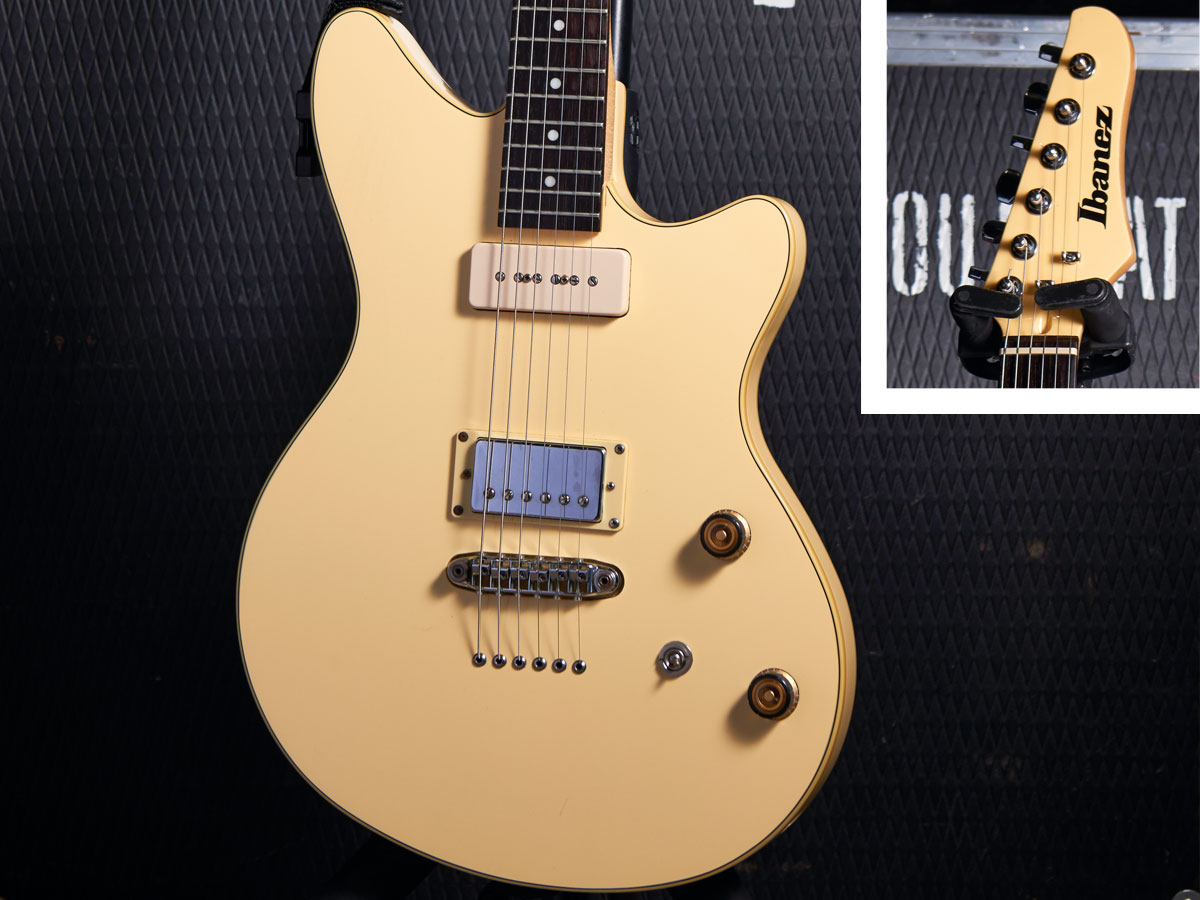
Ibanez CMM1
Chris Miller: "I've got two of my CMM1 signature models with me. It's got a humbucker in the bridge and a P-90 in the neck and I'm using exactly what you can buy in the shops.
"I use the production ones for some of the softer songs, whether it's full-blown clean in the middle position, using both pickups for a nice smooth sound, or for just the songs that aren't quite full-blown rock 'n' roll. You get a nice break-up and it sounds really good."
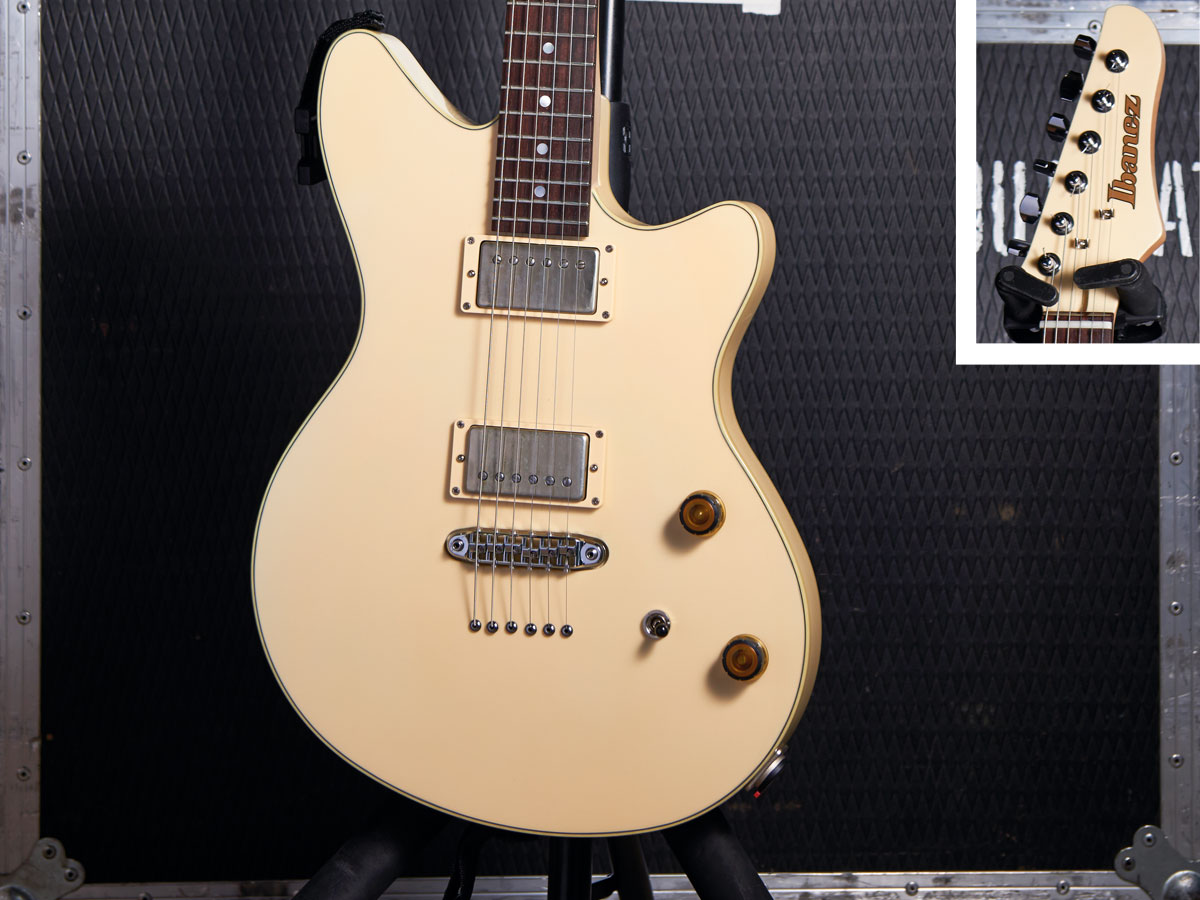
Ibanez CMM1 Custom
Chris: "This model is a custom shop one, which was hand-built in LA - it's my main guitar at the moment.
"I made a few tweaks to the production model with this one. The body is a little bit thicker and the neck's a little fatter and completely unfinished, which means it's really fast. I swapped the pickups out in that one for Seymour Duncan Antiquity units."
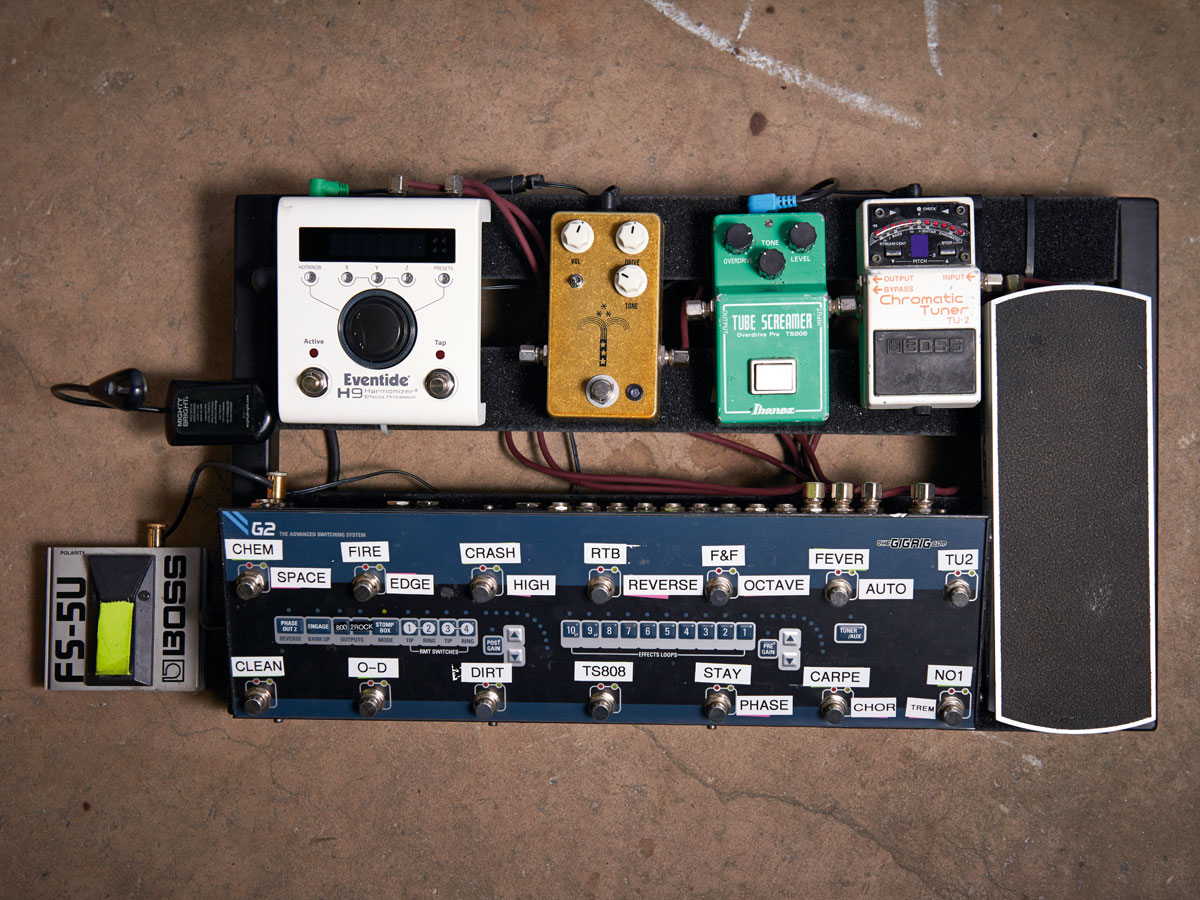
TheGigRig G2 Switching System
Chris: "The heart of the 'board is a G2switcher by TheGigRig, which is a fantastic British company.
"It's just mind-blowing what you can do with it: you've got 30 different patches, different ways you can loop your pedals, you can swap your amp channels, set the phase between two cabs. Basically, everything."
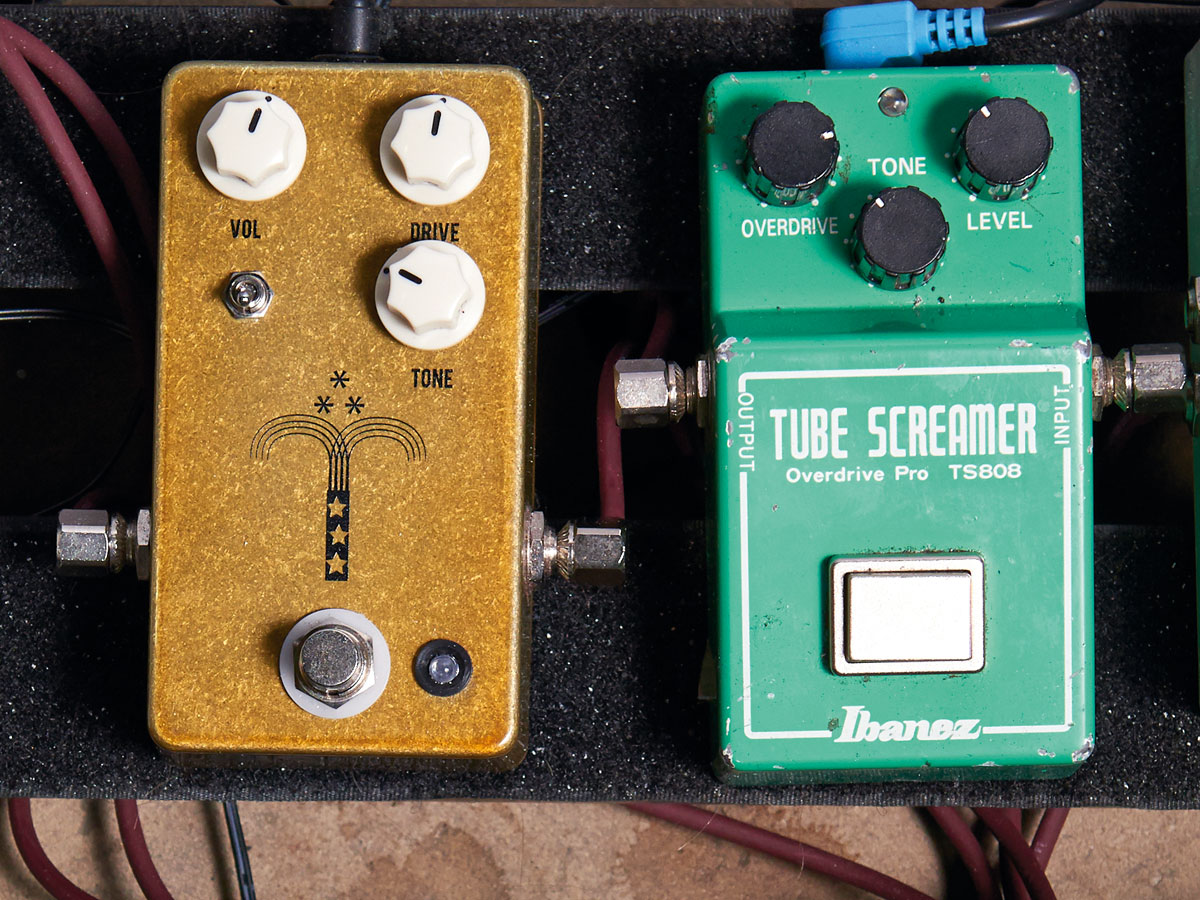
JHS Morning Glory/Ibanez Tube Screamer
Chris: "I run two amps live, so I've got an overdrive for each one. On my clean amp, I run a JHS Morning Glory, which is like a Tube Screamer TS-808 clone.
"The Morning Glory's got a lot of gain - but when you find the sweet spot, it's just a perfect break-up. And then I use an actual old Tube Screamer on my dirty amp. It's the drive pedal I've used forever."
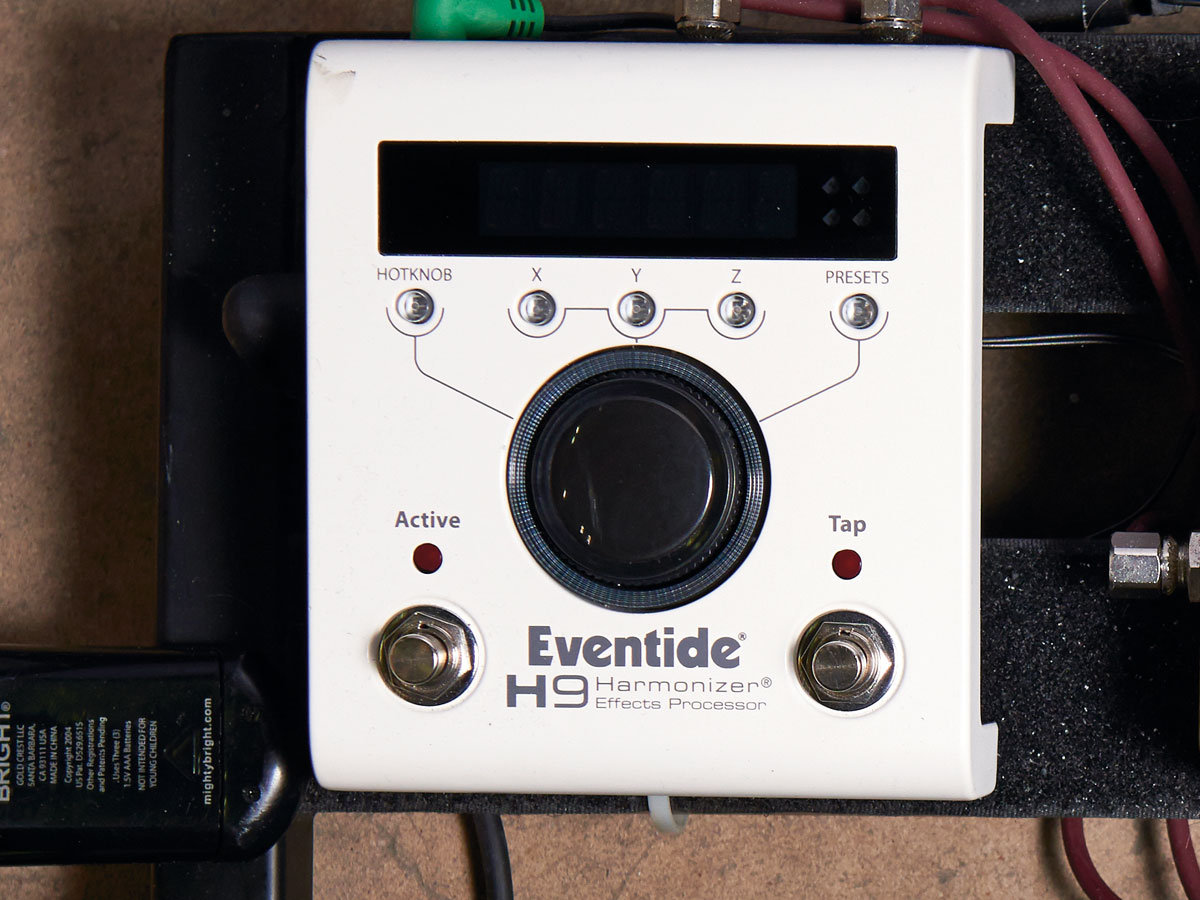
Eventide H9
Chris: "I used to use a lot of delays and modulation, but I've whittled it down to the Eventide H9, which is a multi-effects pedal with all the patches from the Factor series and that covers all my delays, reverbs, phaser, trem, octaves and everything.
"The only flaw with it is that you can't stack more than one thing at the same time, so I hope you sort that out Eventide, because that would be sick!"
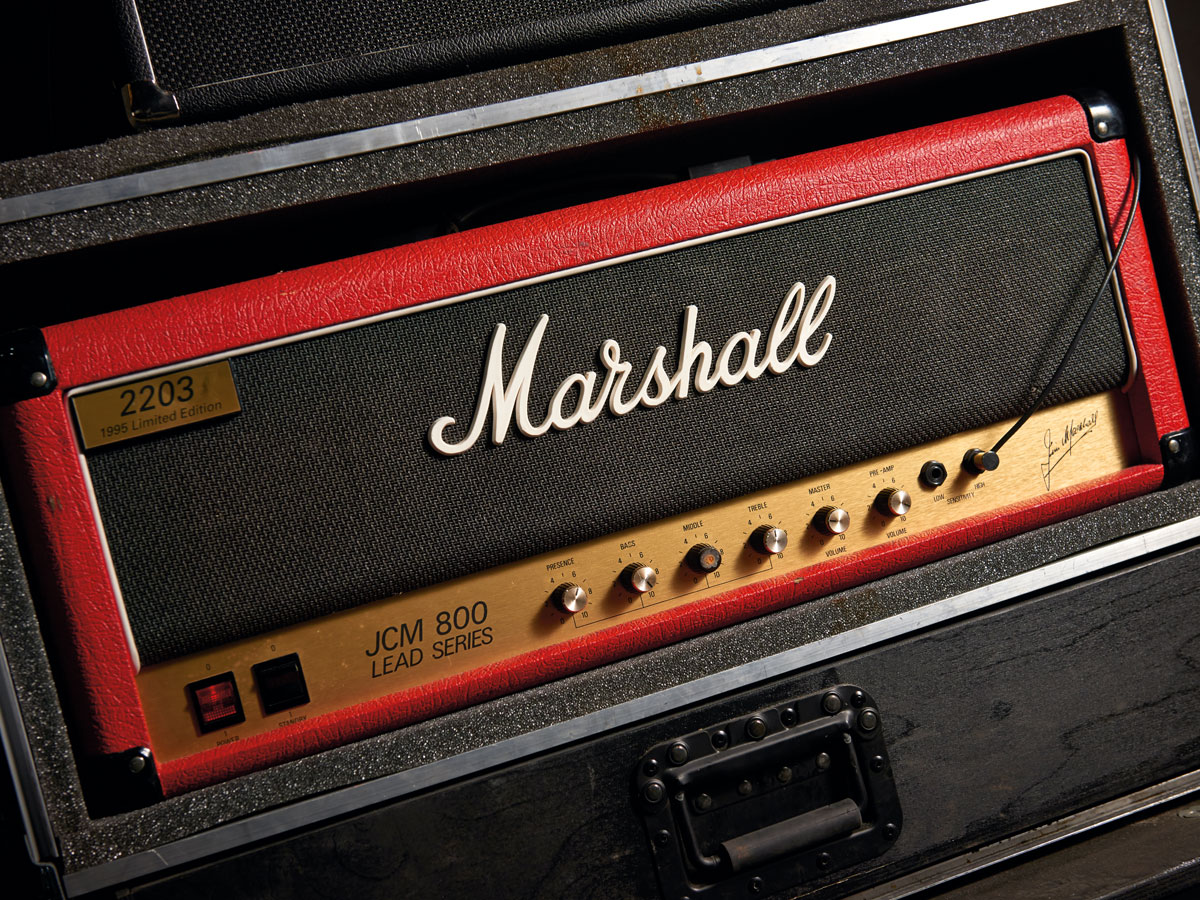
Marshall JCM900
Chris: "The main core of my sound is a JCM800. It's the first valve amp I ever played through and it's just instant ‘AC/DC' - which is all you really need from a distortion amp!
"The clean channel's not very good, but the distortion is amazing. I've used that since we started as a band."
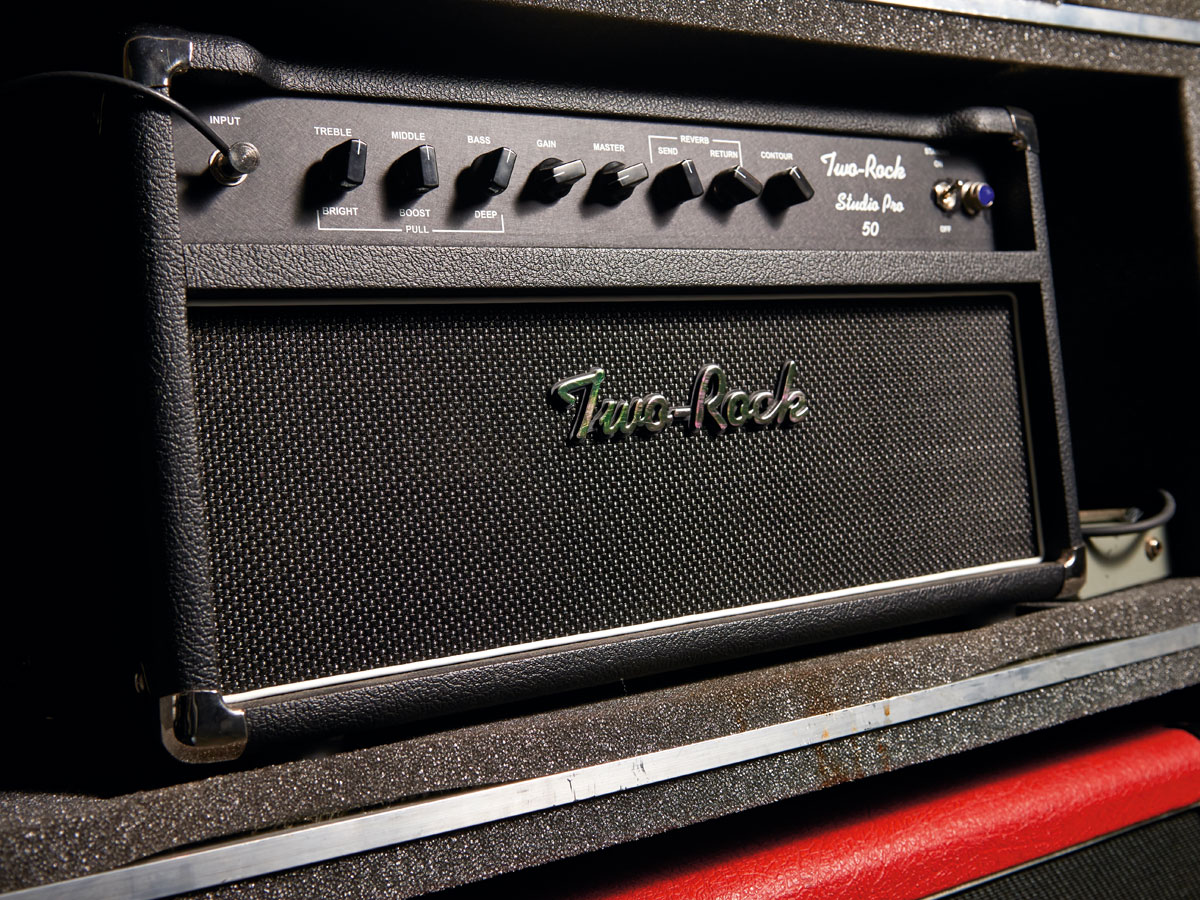
Two-Rock Studio Pro 50
Chris: "Something that's always changed for me is clean amps, but I think I've found the amp that I like now with the Two-Rock.
"You can't really get an amp that goes louder without breaking up. It's also got a gain on it as well, so you can get loads of headroom or this lovely John Mayer-y break-up."
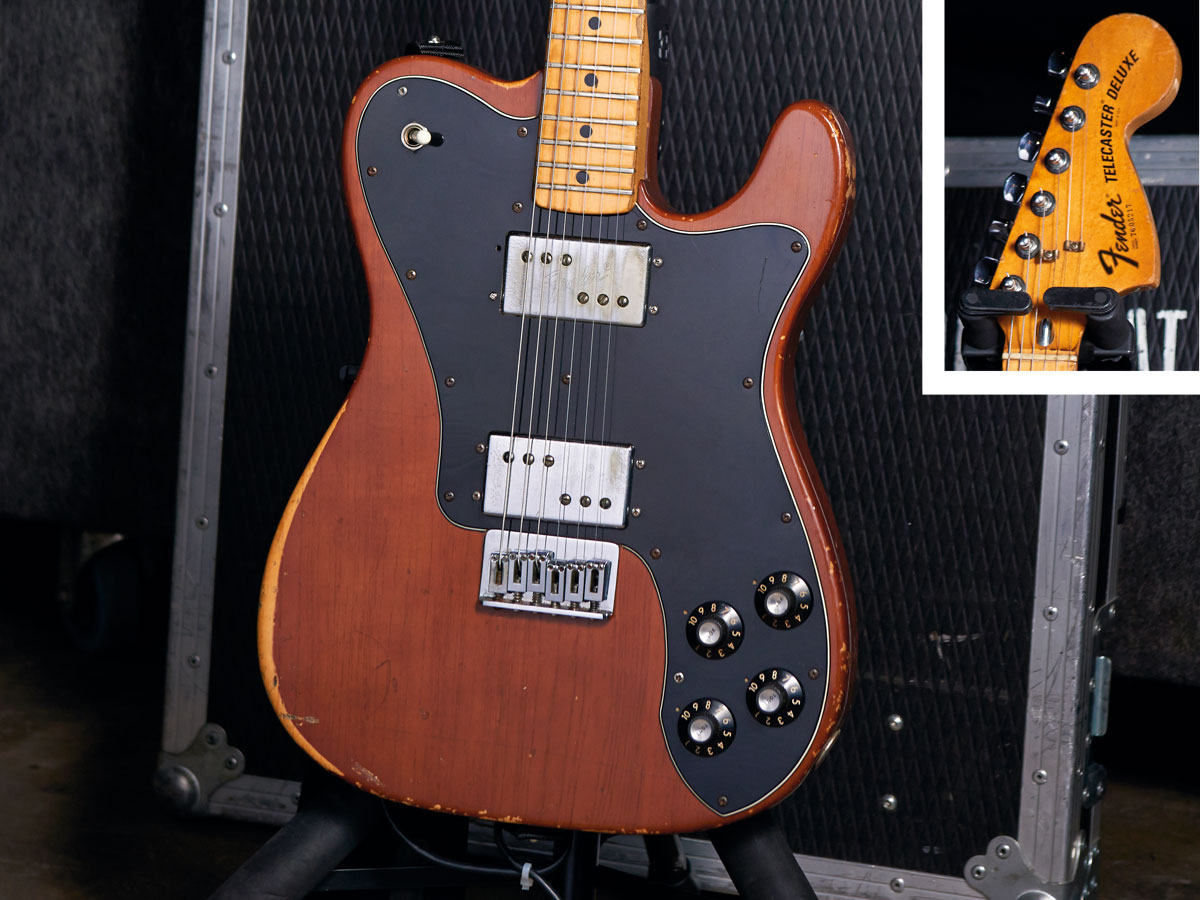
1977 Fender Telecaster
Max Helyer: "This is the main guitar I'm using throughout the set. It's a '77 model - an original - and it feels like it's had some years played through it.
"It plays great, particularly for what I'm playing now, which is a lot more picky parts, with a bit more twang . I'm using this guitar on Stay With Me, Loverboy, Underdog... I have, like, an 11-song run."
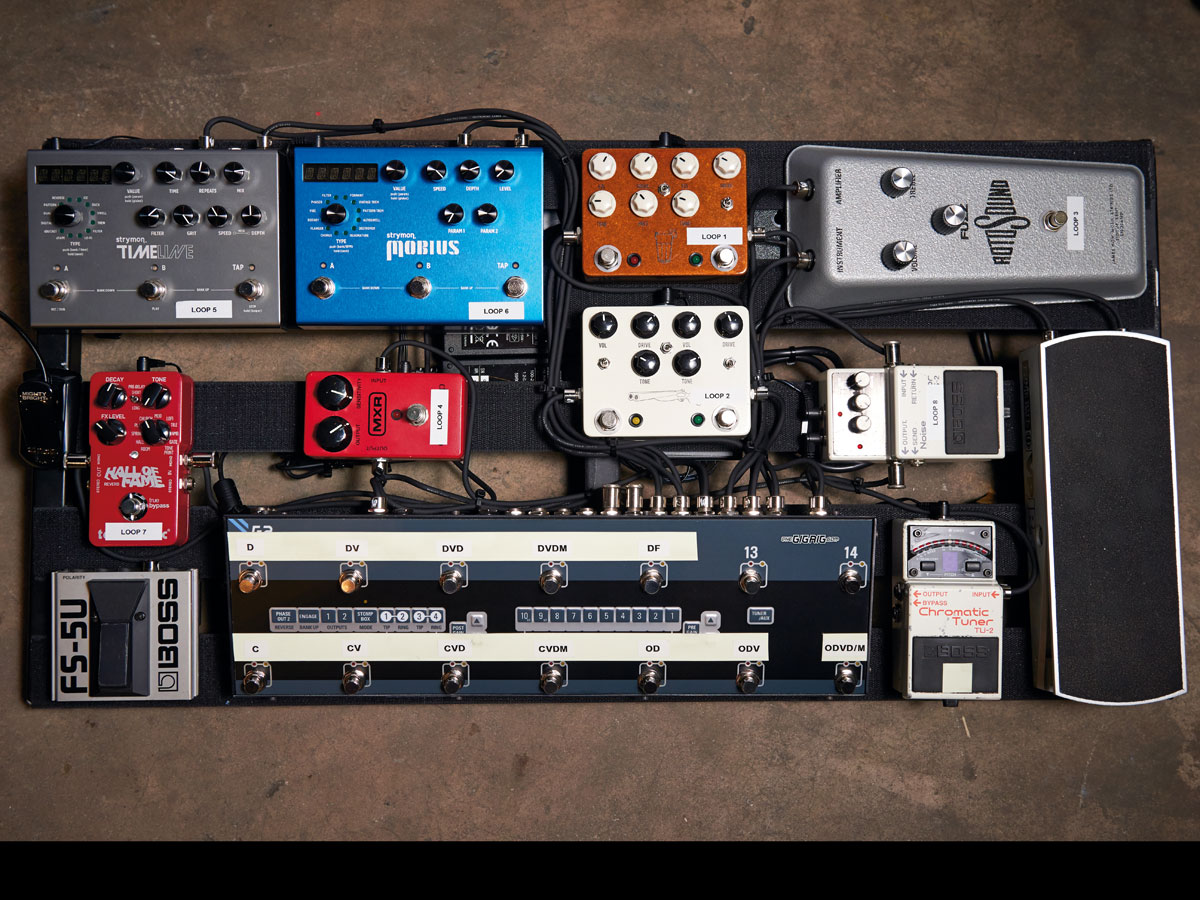
TheGigRig G2 Switching System
Max: "Since we last spoke, my pedalboard's totally changed and, like Chris, my main hub is the G2.
"Just seeing how efficient it's been for Chris really was a selling point to me. I was there tap-dancing eight different changes, while Chris would just be laughing and having maximum time for beer drinking!"
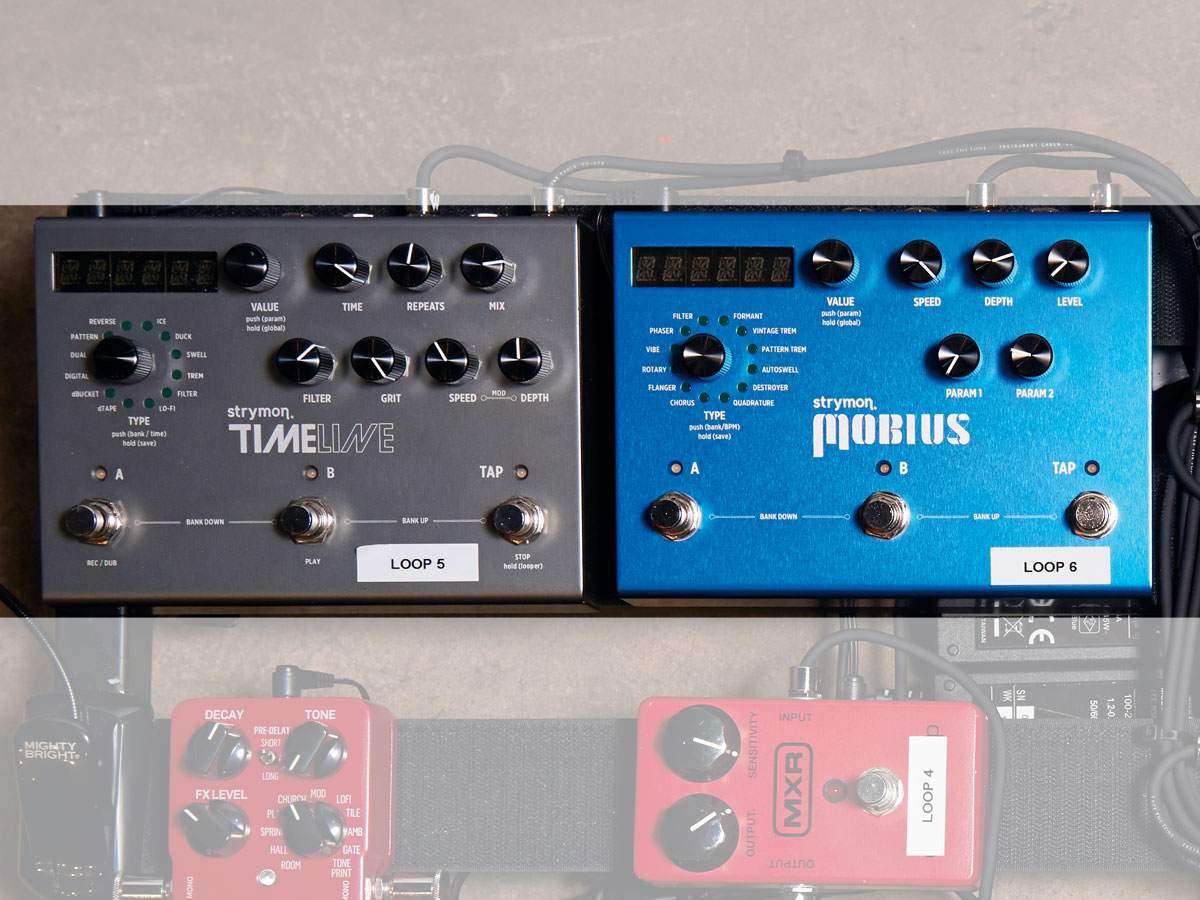
Strymon Mobius & Timeline
Max: "I made the move from Boss to Strymon because a lot of my friends who play guitar raved about how well that stuff works.
"The options you can get with the delay on the TimeLine are ridiculous. Then the Mobius, for me, I feel the selling point was that I could have chorus, phaser, flanger, rotary, vibe, tremolo - all of these settings in one box."
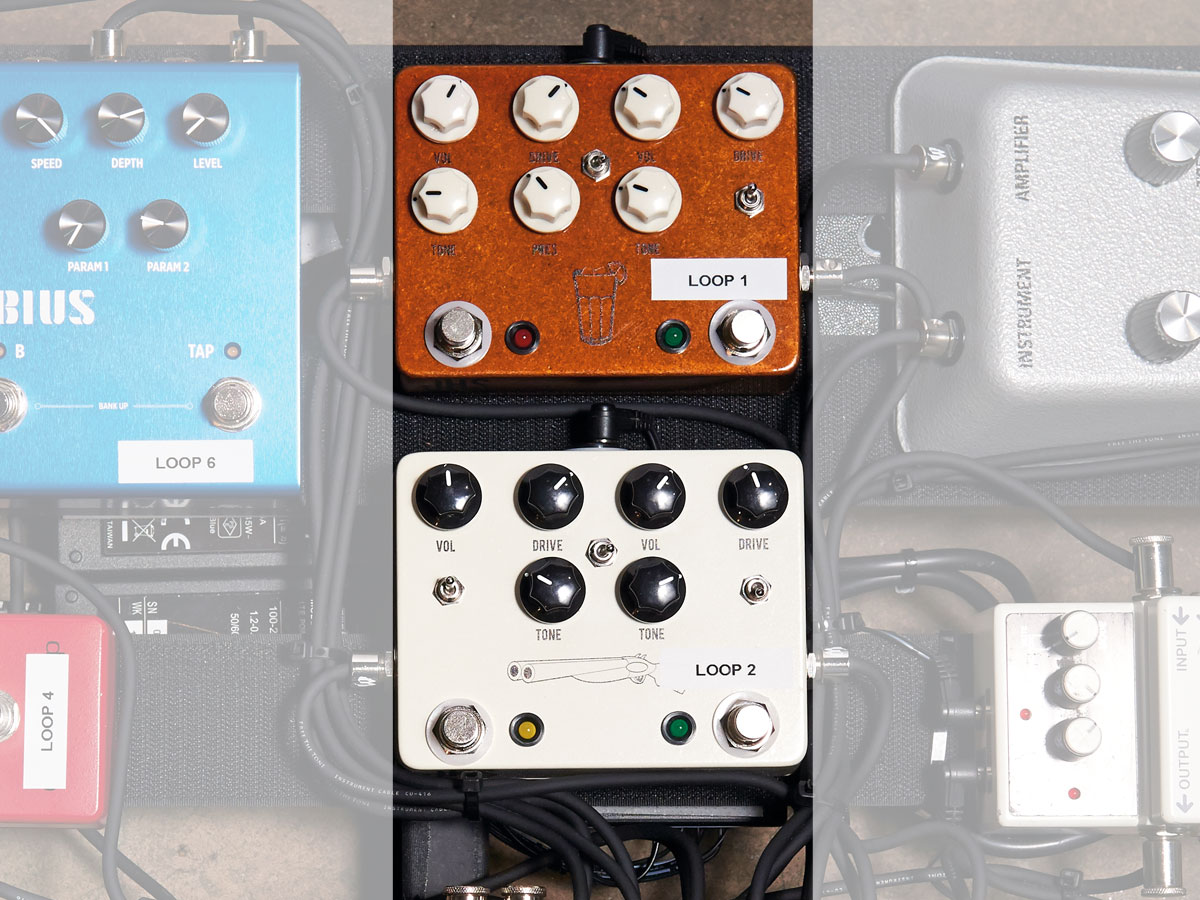
JHS Double Barrel & Sweet Tea
Max: "I find my overdrive sound with the JHS Double Barrel, which is similar to Chris's Morning Glory pedal, but with an added boost on the other side.
"I have both of the settings on and I run it really hot, so it breaks up really well. Then my distortion sound is another JHS pedal, the Sweet Tea."
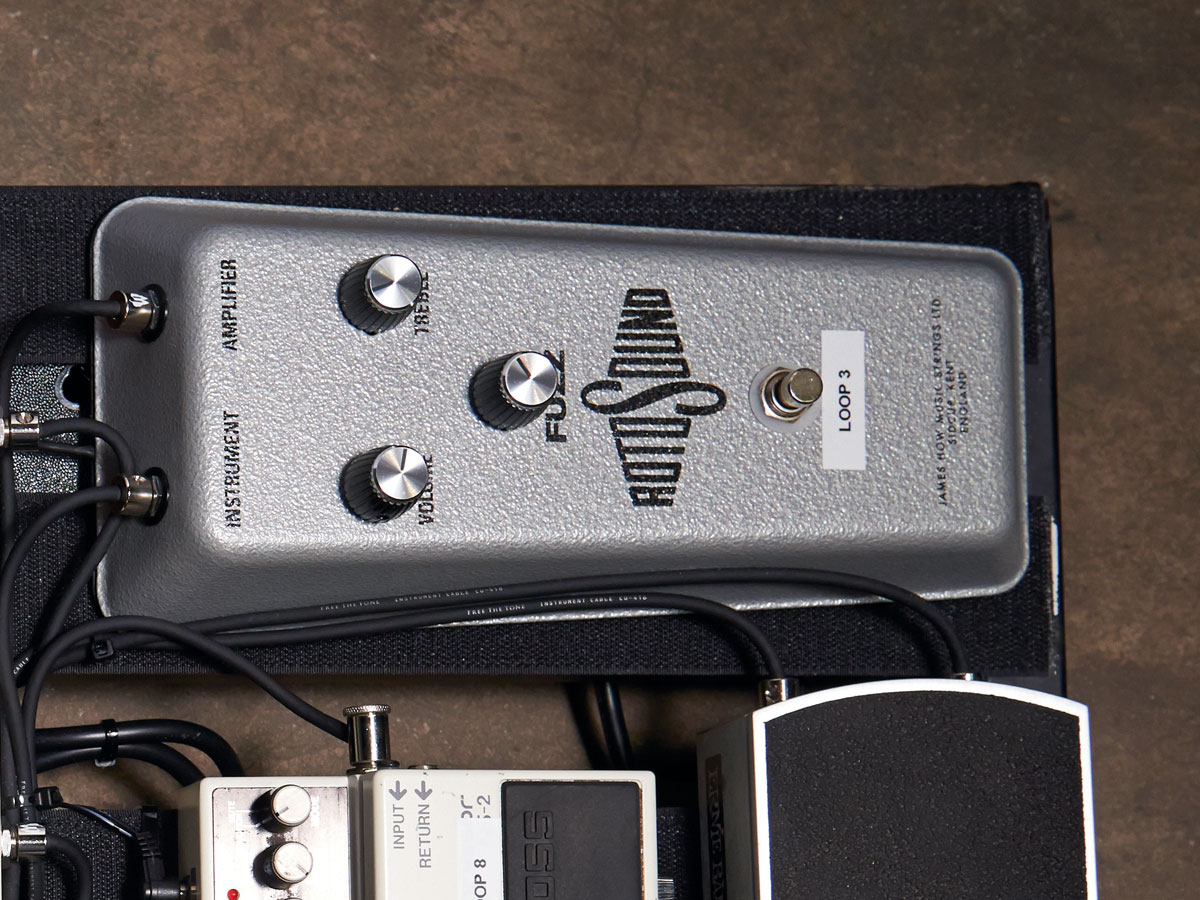
Rotosound Fuzz
Max: "I have a Rotosound Fuzz reissue, based on the ones that Jimmy Page used back in the day.
"They copied everything they did on the 60s version into the new one and made 2,000 of them. I put it on top of my JHS Sweet Tea, so it adds this fizz and fuzzy tone underneath, or if I want to make something sound fat."
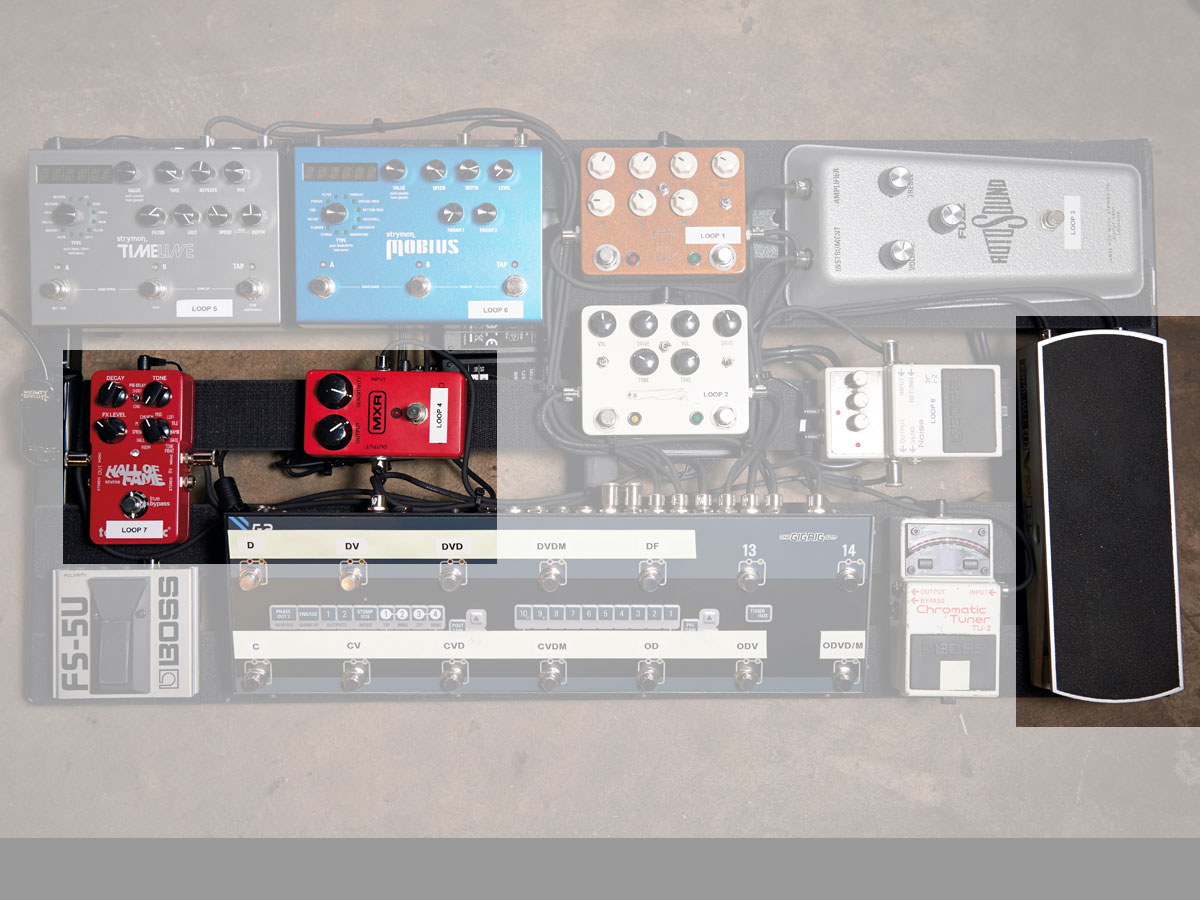
Other pedals
Max: "I've been getting involved with the TC Electronic Hall Of Fame reverb in a lot of our songs just to make it sound big and roomy and vast.
"Then I use a Boss Noise Suppressor, because all of these pedals make a lot of noise. There's also an Ernie Ball volume pedal on my pedalboard, which is just reliable and great. Then the classic TU-2 tuner: good old trusty TU-2!"
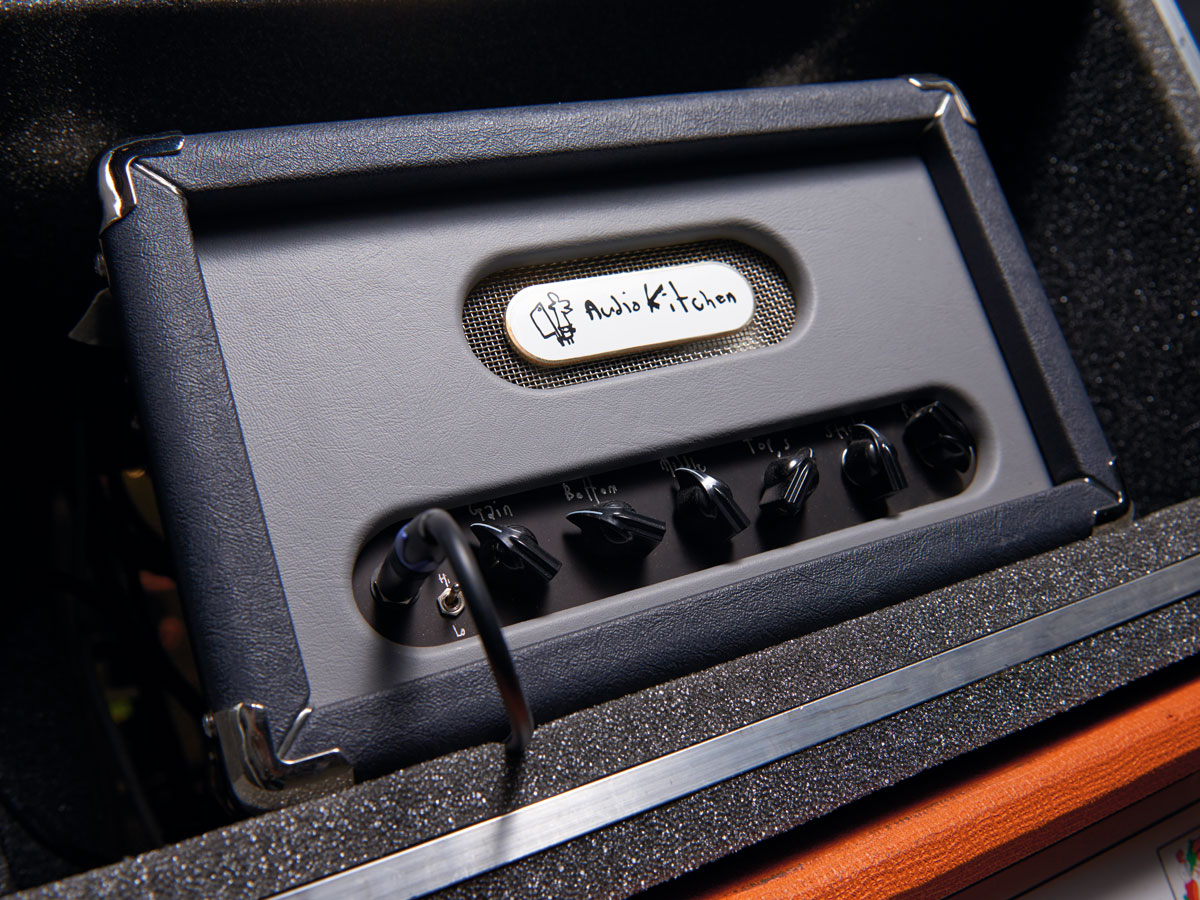
Audio Kitchen Little Chopper
Max: "I use one guitar head now. I wanted to make [my choice of amp] so minimalistic that I could play it from my bedroom at home, or come to an arena and use it for when we practice.
"I can't rate any more [highly] how good this head is, and how well Audio Kitchen has looked after me. I can even carry it, too. I've taken this amp to America on tour - I never have to rent heads any more, because I know I can take this with me."
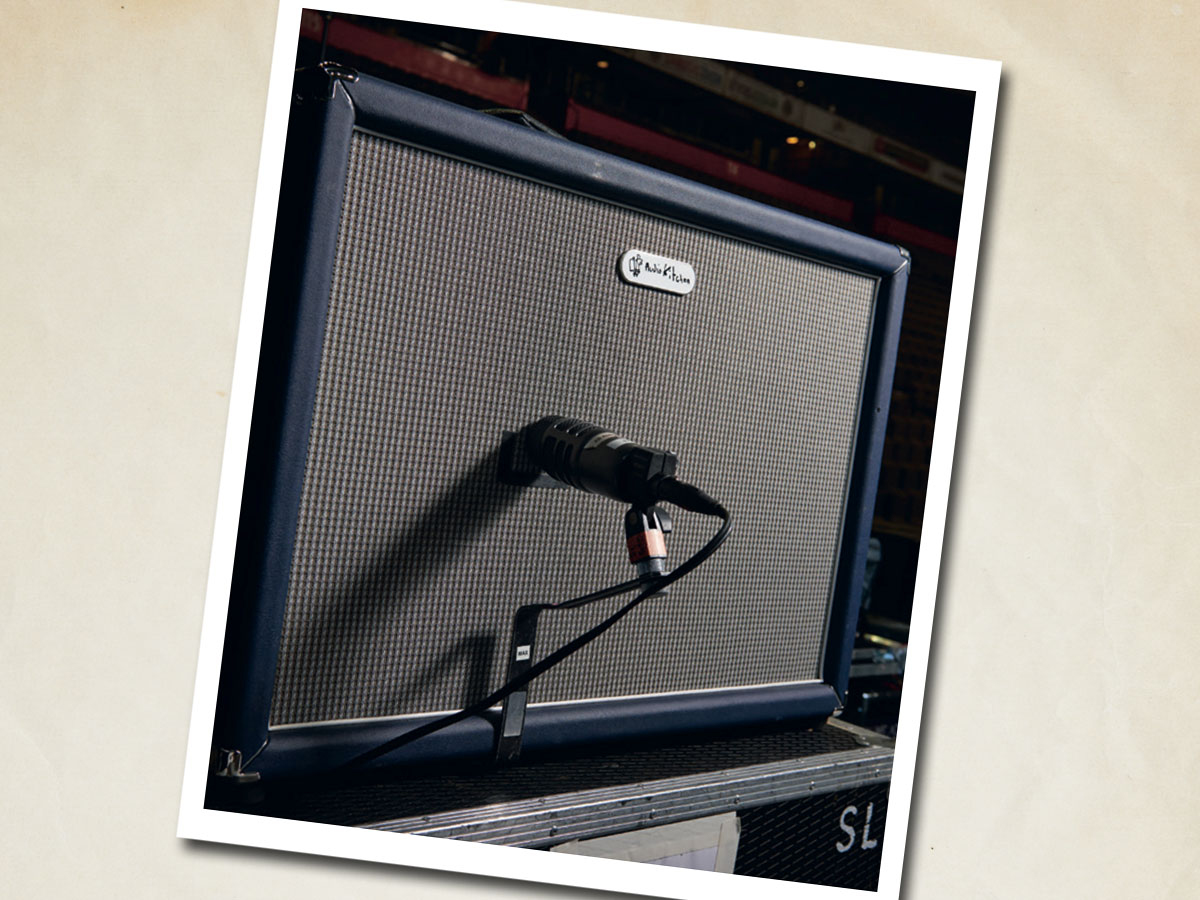
Audio Kitchen 2x12 Cabinet
Max: "This cab has got a blue Celestion and a green Celestion side. I'm currently using the green Celestion live, mic'd up, and it has the option of the open and closed back, too. Basically, my rig that I'm playing here right now [in the Manchester Arena] I can fit into my Volkswagen Golf at home!
"You've got to enjoy the stuff you've got. There's no point keeping it in a closet, locked away. When I'm old and grey, I'd rather be able to say, ‘I played the O2 with this guitar.' It's got some dinks and some battle scars, but that's all part of the charm."
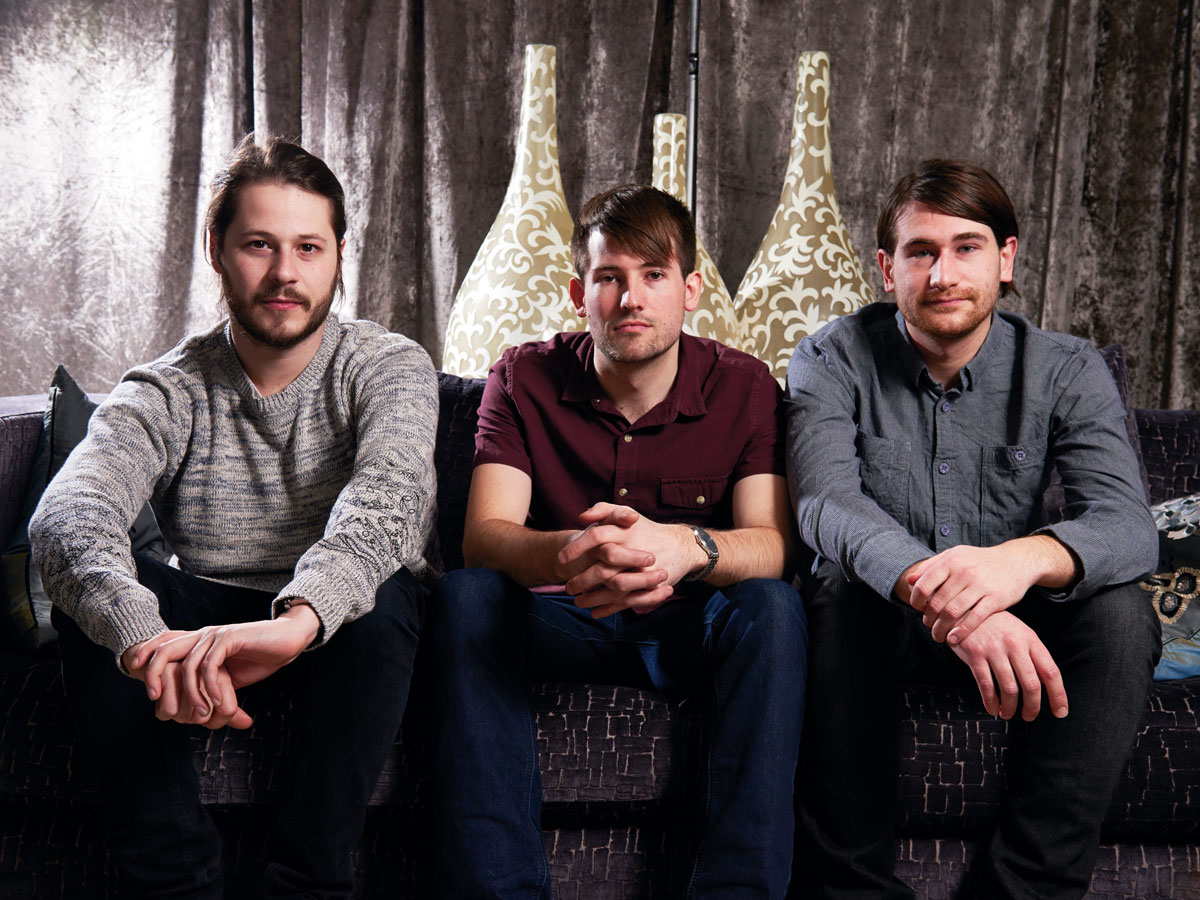
Six's number three - the unsung hero of the YMAS live show
Luke Rendell [pictured middle] is the man in the back, upping the attack at You Me At Six gigs. A long-time friend of Chris Miller’s, he first signed up when the band needed a tech back in 2008.
“I gradually got asked to do backing vocals and guitar [live],” explains Luke. “Eventually, it got to the point when they said, ‘We’ll get someone else to tech and have you out as a session musician.’”
His job nowadays is to bulk up the YMAS live sound, handling third guitar and harmony vocals. “I play a lot of baritone [using a custom Ibanez and a Danelectro],” he says, “usually an octave below the guitars, which really fills it out.”
Tonally, Luke relies on his mahogany- topped 1983 Ibanez Artist (“you want a warmer sound, so it blends well”) and 1977 Greco LP copy, before splitting between a JCM800 for distortion and an Orange AD30 for clean and crunch.
Luke also plays in his own band, Out Like Wolves, but admits a YMAS festival show can be hard to beat.
“When it’s a beautiful sunny day and the rays are coming through the smoke and there are thousands of people out there...” he ponders. “You just think, ‘Yeah, this is amazing.’”
Matt is a freelance journalist who has spent the last decade interviewing musicians for the likes of Total Guitar, Guitarist, Guitar World, MusicRadar, NME.com, DJ Mag and Electronic Sound. In 2020, he launched CreativeMoney.co.uk, which aims to share the ideas that make creative lifestyles more sustainable. He plays guitar, but should not be allowed near your delay pedals.
